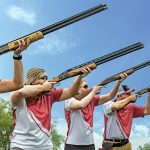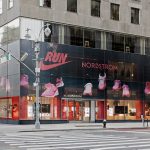VF Corp. in a statement noted that in a House Judiciary subcommittee hearing being conducted now, U.S. Rep. Howard Coble (R-NC) on Thursday informed his colleagues that the National Football League has a right to enter into exclusive agreements with apparel companies – including one in his congressional district – and not be in violation of anti-trust laws.
VF Corp noted that Congressman Coble said in his opening statement today, that the NFL and VF Imagewear, a division of VF Corporation in Greensboro, can sign contracts with each other because the league is one business entity and not 32 businesses colluding to keep others out of competition.
“When it comes to protecting jobs, particularly in the textile industry, I will take a back seat to no one,” Rep. Coble stated. “The VF Corporation has a very significant interest in its business with NFL Properties – manufacturing NFL jerseys, and as you can imagine, we are very interested in today's hearing. It seems relatively clear to me that any sports league must act as a single entity in order to produce the sport. Without a schedule, rules, basic equipment, or other guidelines the sport would have no value. There would be chaos if the Carolina Panthers had to negotiate who they were playing and the rules for each game.”
Rep. Coble, the Ranking Member of the Judiciary Subcommittee on Courts and Competition Policy, said the key question for today's hearing is if it is rational for the NFL to act as a single entity for antitrust purposes beyond its production of games on the field.
“To my mind,” Rep. Coble added, “the question presented by the American Needle case, whether the NFL acts as a single economic entity for marketing purposes, is also pretty clear. The NFL would not function as a marketing entity if some, or all, of its teams refused to license their trademarks collectively. Fans would be hurt because they would not be able to get merchandise with their favorite team's logo or could only purchase it at the price that their team was willing to sell its license. Manufacturers would be hurt because they would have to negotiate with individual teams for different products over different lengths of time, thereby dramatically raising their costs of production. And the league's value would be diminished because not all of the teams would be well-marketed and because some teams might choose to license their products for goods that do not represent the best interests of the league and its brand. Finally, the revenues and profits would not be shared equally throughout the league.”
Rep. Coble said the plaintiff in this case, American Needle, seemed to enjoy contracting with the NFL and receiving all 32 team logos when it was an official licensee.
“Once the NFL, however, opted to go with a different hat manufacturer,” Coble added, “American Needle decided to sue the league over its collective marketing practices. It is axiomatic that the antitrust laws exist to protect competition, not competitors. The District Court and the Court of Appeals felt that the NFL's licensing practice was valid. I am inclined to agree. Having lost the benefit of that bargain, it appears that American Needle had a case of manufacturer's remorse and attempted to obtain through litigation that which it could not obtain through negotiation.”
According to VF Corp., Rep. Coble said he recognized that the Supreme Court's decision in this matter could have an impact beyond the instant set of facts. Without the decision in hand, however, he said it is too early to tell what Congress needs to be concerned about here, if anything. Rep. Coble concluded that he is interested in ensuring that the NFL or any other professional sports league does not abuse its power, “But I am also concerned stakeholders use today's hearing as a forum to speculate and draw conclusions about the NFL before the Supreme Court's decision.”













